Tribal Weapons
Tribal Weapons
This article is to help you identify what your unknown tribal weapon is and where it is from. Due to the vast amount of tribal weapons this article does not include weapons made of steel and focuses on non-iron primitive weapons.
Some tribal weapons are common and worth very little but others are rare and can be very collectable. They range in value from less than $100 to $100,000 so working out what your tribal weapon is worth is worth the time and effort.
I specialize in tribal weapons from the Pacific and Australia but I have a network of people who know about weapons from other areas. If you have an unknown tribal weapon not made of steel please feel free to send me an image and I will let you know what it is and what it is worth. If I don’t recognize where your tribal weapon is from I will likely be able to point you in the right direction to continue your search.
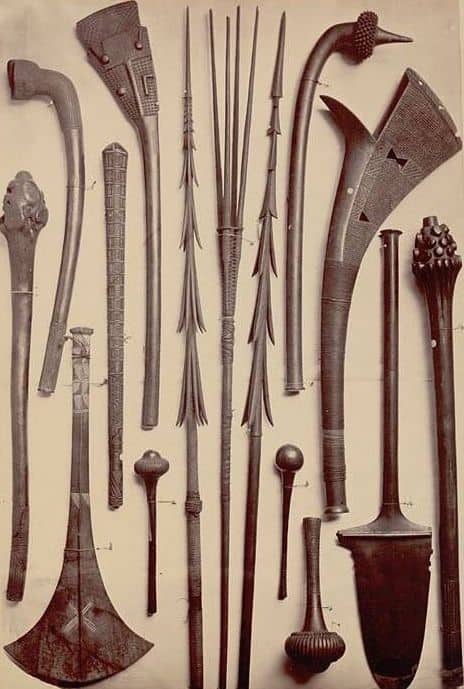
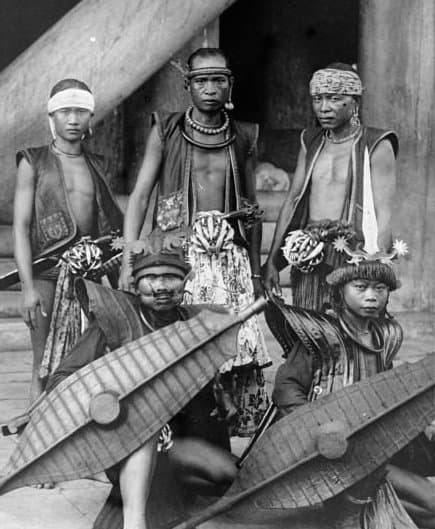
General information about Tribal weapons
Different cultures around the world developed specialized weapons. Weapon design depended on the environment, technologies and war fare style. Weapons were often decorated to harness super-natural or ancestral powers. Sometime the decorative nature on shields was for psychological war fare and made to intimidate the enemy.
Many tribal weapons end up far from where they originated, in anywhere from Scottish castles to suburban rummage sales. Weapons are collectable in their own right but many are quite beautiful and are also art objects in their own right.
Left: Nias Warriors Indonesia with traditional shields

Tribal Weapons Shields
War shields are for defense against spears, arrows and clubs in many cultures. They are often covered with clan motifs to empower the shield with protective spirits. They range vastly in size from small parrying shields to huge shields for defense against arrows. I mainly deal in shields made from wood and rattan. Many forms of hide shield exist and most are African in origin.
Left Aboriginal Broad Shield from Eastern Australia

Wogamush Shield Papua New Guinea
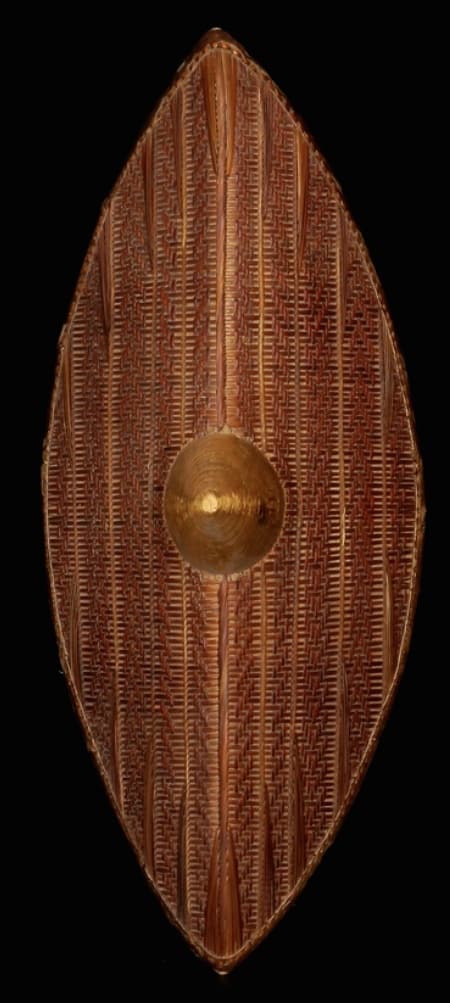
Ghana Shield Uganda Africa
Australian Aboriginal Shields
I have a separate article that extensively covers Aboriginal Shields. Australian shields come in many different forms depending on the tribe that made them and their function. Aboriginal shields come in two main types, Broad shields, and Parrying shields. Parrying shields parry blows from a club whereas broad shields block spears. Shields for parrying are thick strong and narrow whereas broad shields are wide but thin.
The value of an aboriginal shield depends on the quality of the shield, the age, artistic beauty, and rarity. As a rule of thumb, the shields from the areas of earliest contact such as New South Wales tend to be the less common. Rare shields from Eastern Australia are more collectible than those from Western Australia. Most good shields end up in the hands of lovers of tribal art and not Aboriginal weapons collectors.
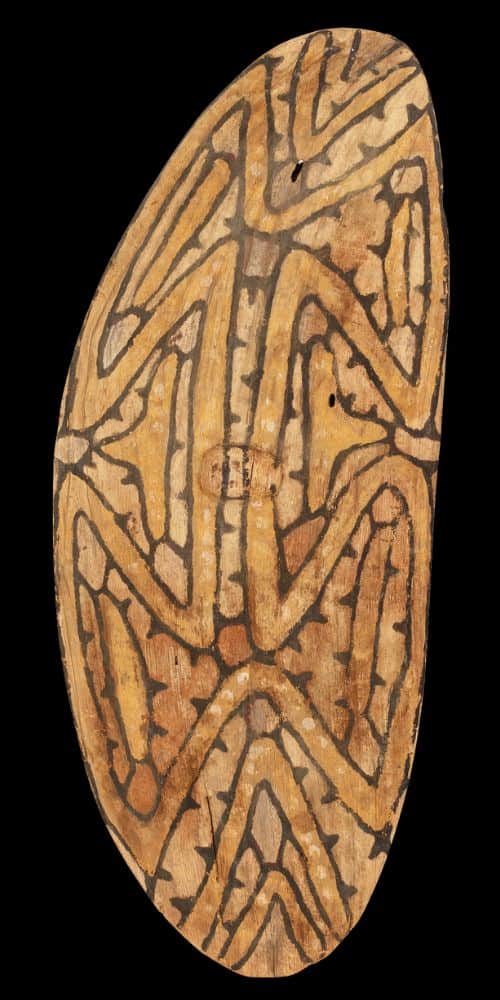
Rain Forest shield
North Queensland
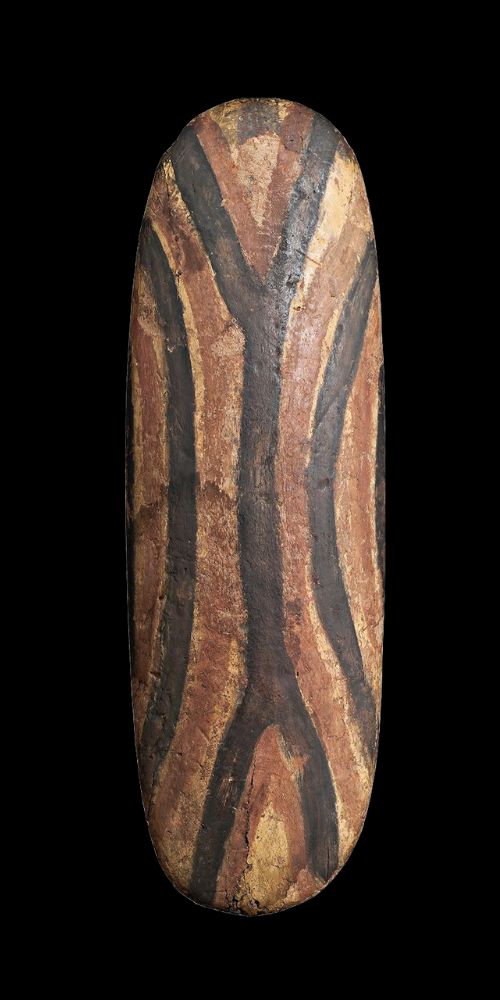
Gulmari Shield
South Queensland
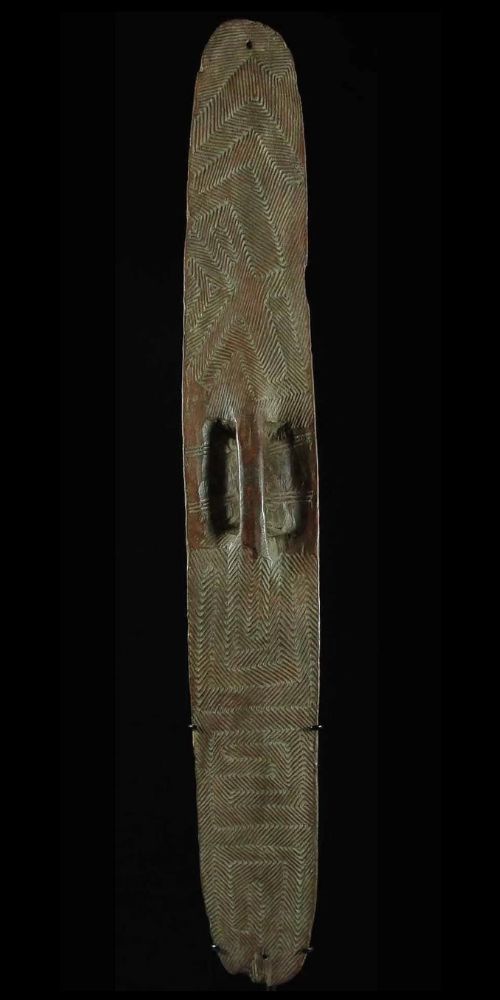
La Grange Shield
Kimberley Western Australia
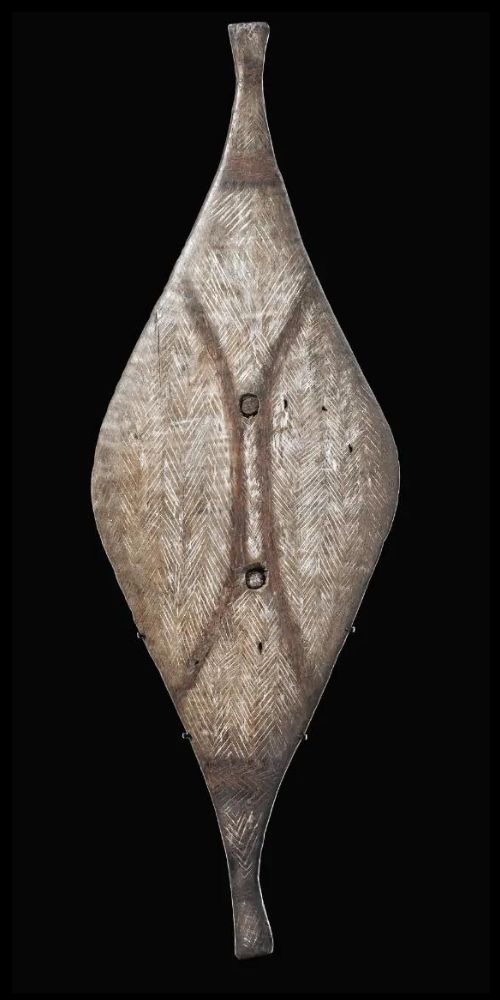
Broad Shield
Victoria
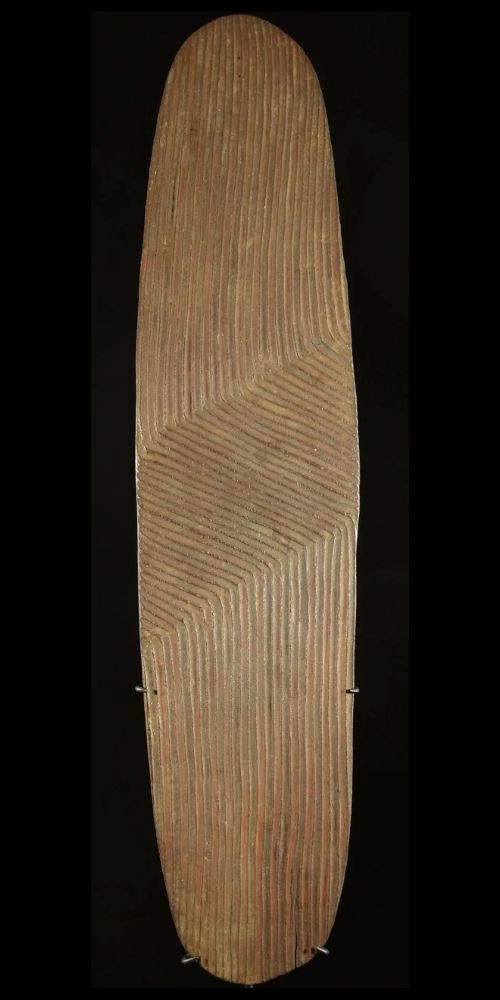
Wunda Shield
Western Australia
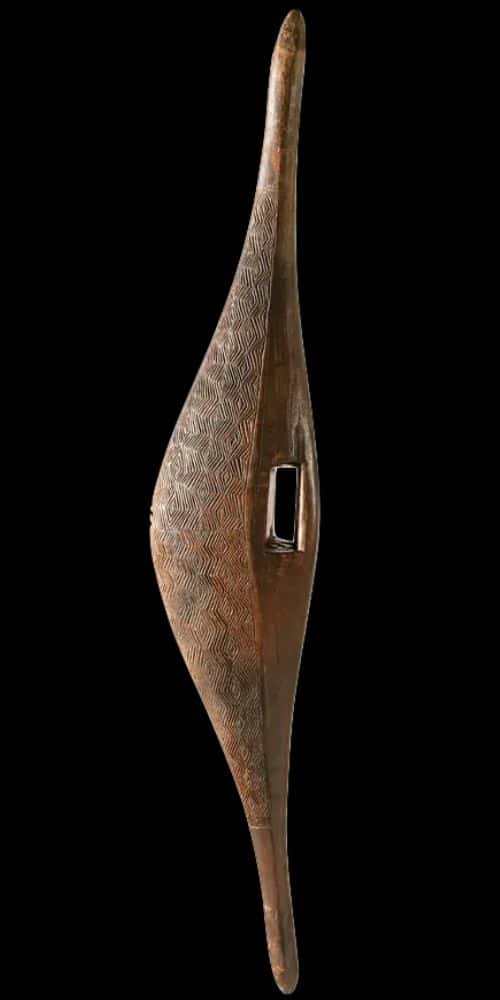
Parrying Shield
South East Australia
African Shields
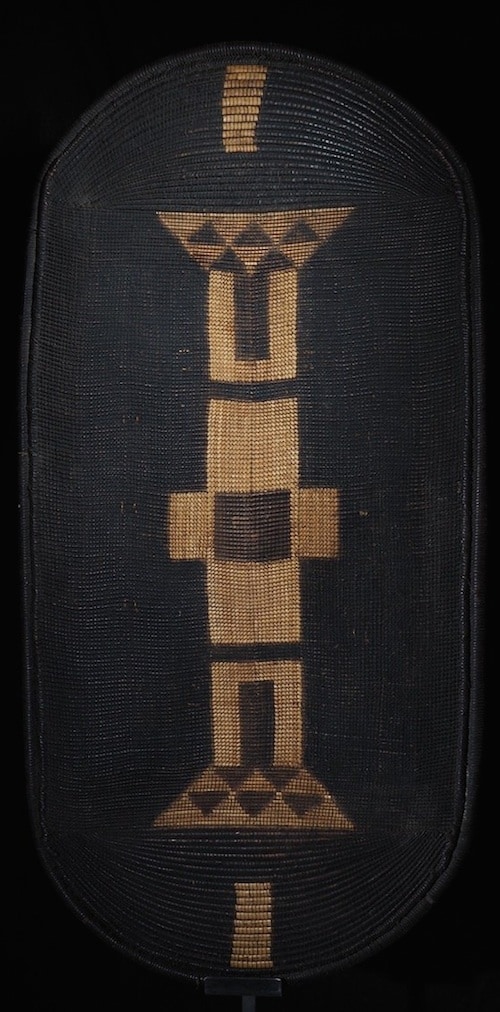
Zande Shield South Sudan
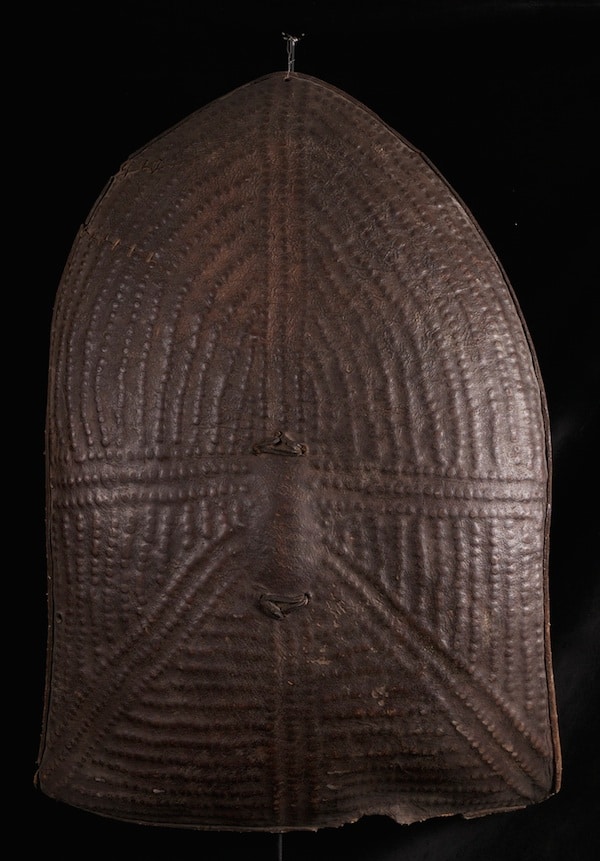
Kirdi Shield Cameroon
African Wooden shields
Wooden African shields are from many different areas all across Africa. Their main dispersion area though is the Zaire basin. The homelands of the Eso being of particular importance.
For wood shields manageableness was a decisive factor; thus they could not exceed a certain size or thickness. Wooden shields wer constructed often from light but strong woods.
African Wicker shields
Wicker shields mainly as coming from the tropical rain forest, its bordering areas and the wet steppes. Many different types of plants found use as raw materials in the making of the shields. The large plant family Palmae was one of the most often used
I am not an expert on African shields and recommend Karlsson and Wickman are a good place to contact.
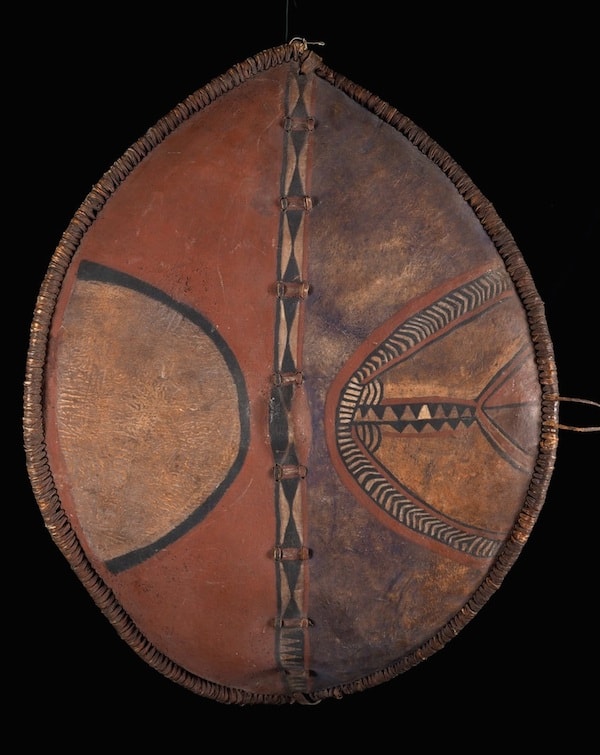
Massia Shield Kenya
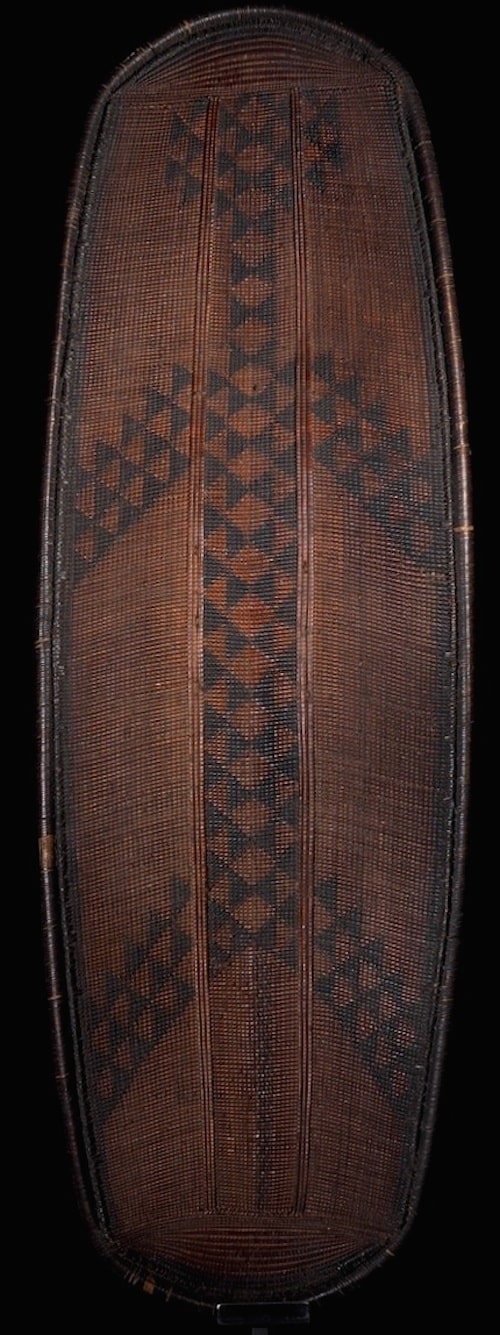
Congo Poto Shield
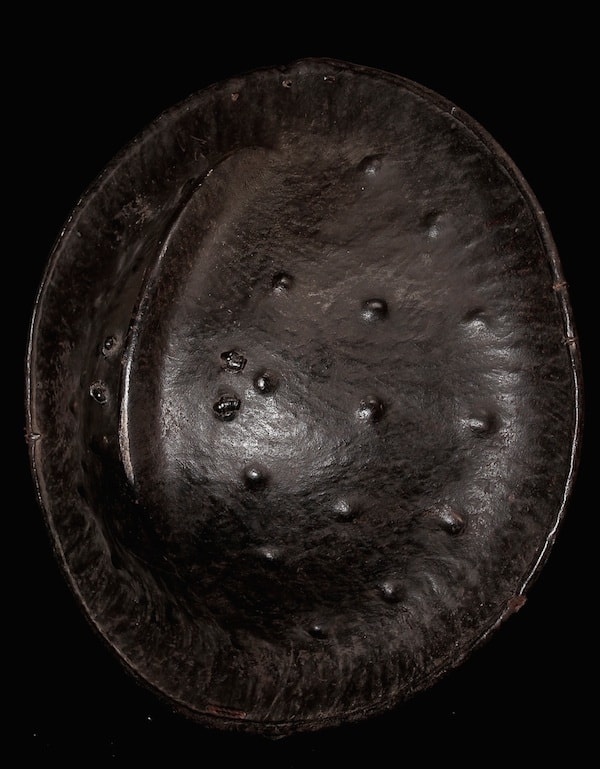
Hide Amarro Shield Ethiopia
Papua New Guinea Shields
There are many different styles of Tribal Shields from Papua New Guinea. They vary depending on the region/tribe they come from. I have written a separate extensive article is to help you recognize and know more about these Tribal Shields of New Guinea. Hopefully, you will appreciate the variety of this wonderful South Pacific art form
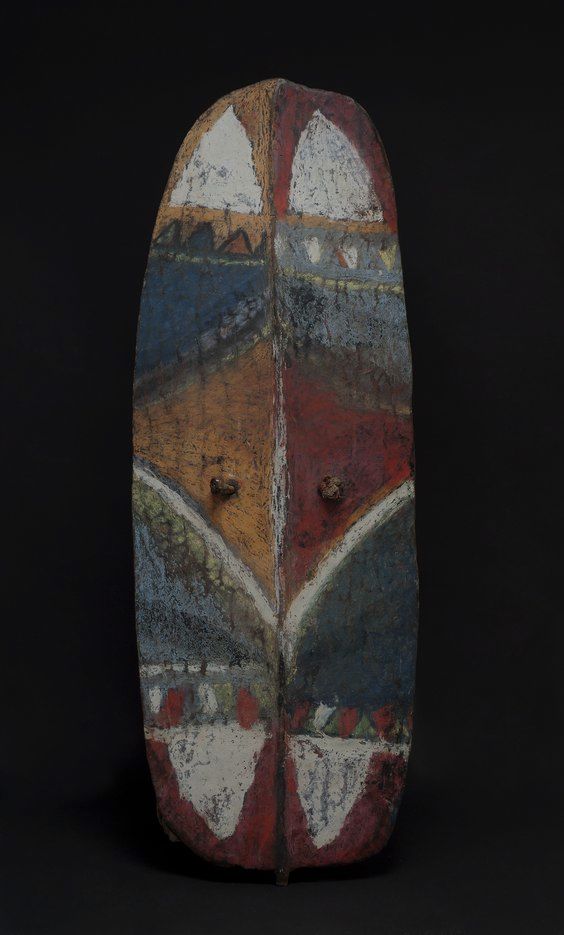
Southern Highlands shield

Kandrian Shield West New Britain
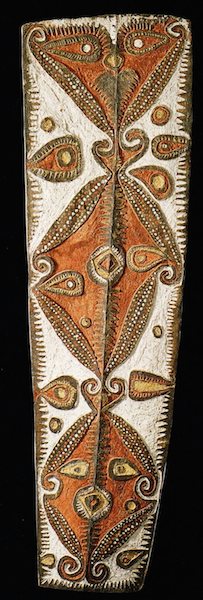
May River Shield
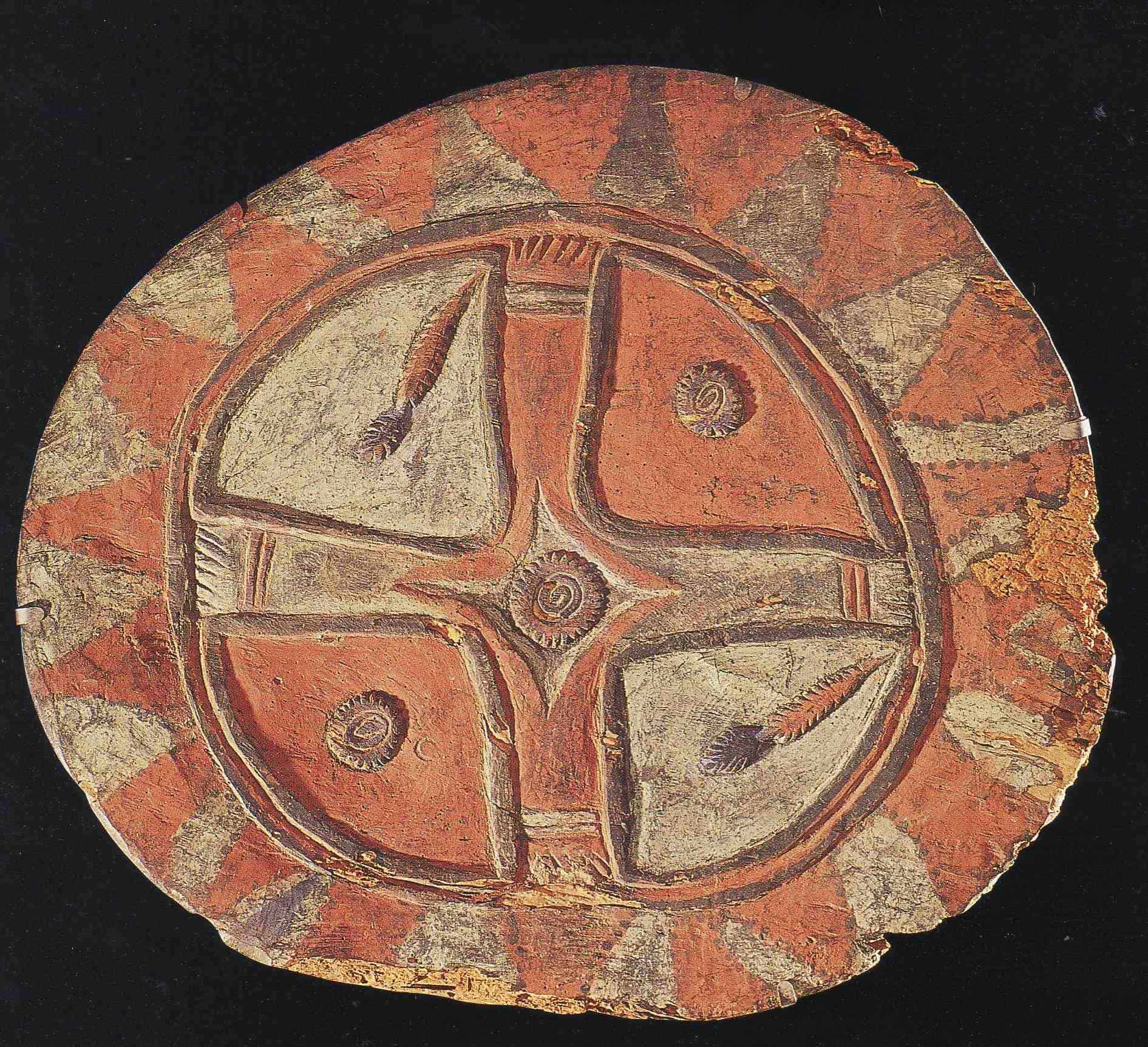
Astrolab Bay Shield
Indonesian Shields
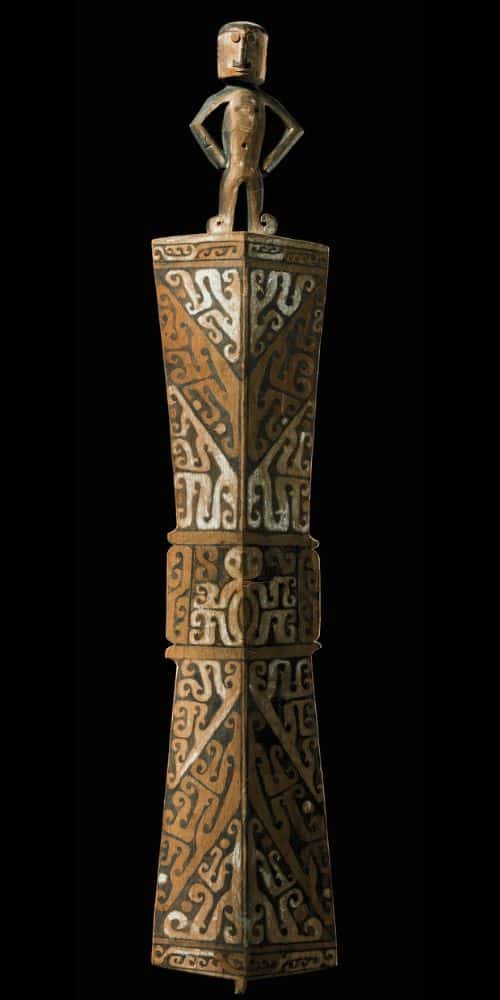
Korvar Shield
West Papua
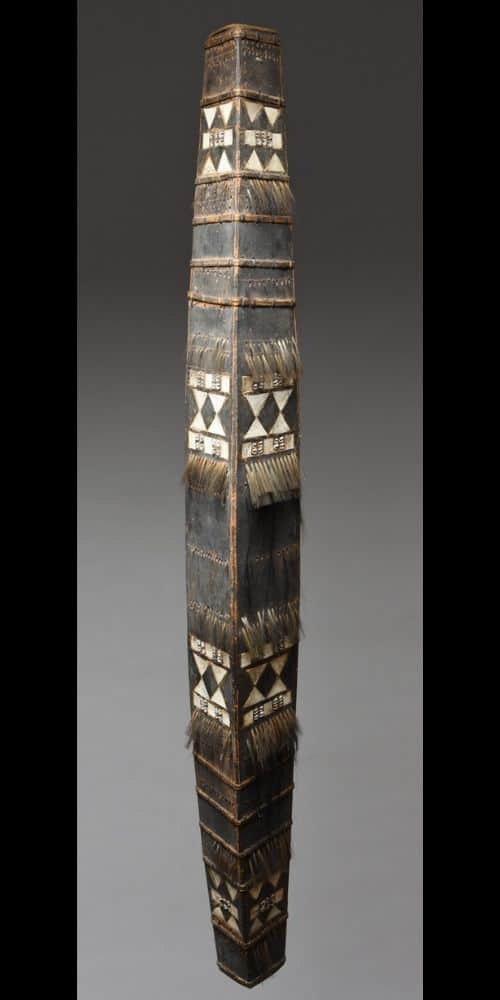
Kanta Shield
Sulawesi
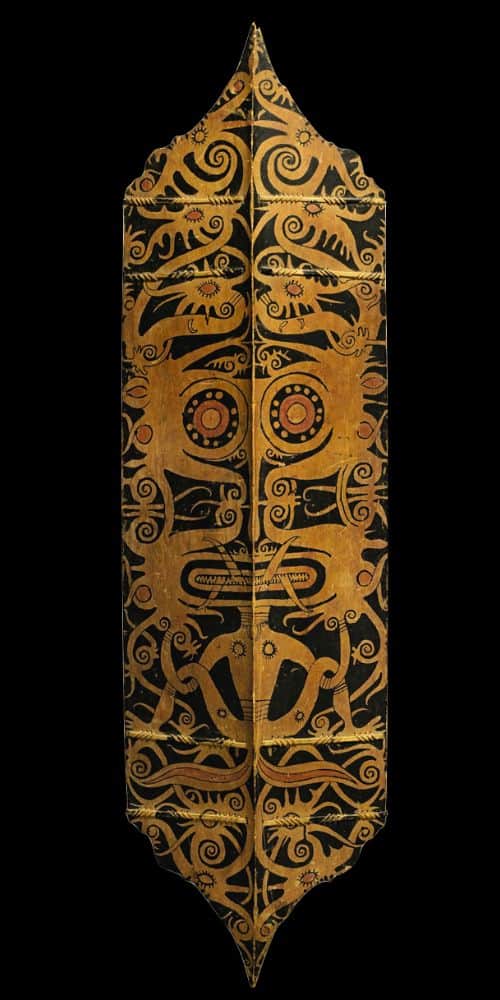
Dayak Shield
Borneo
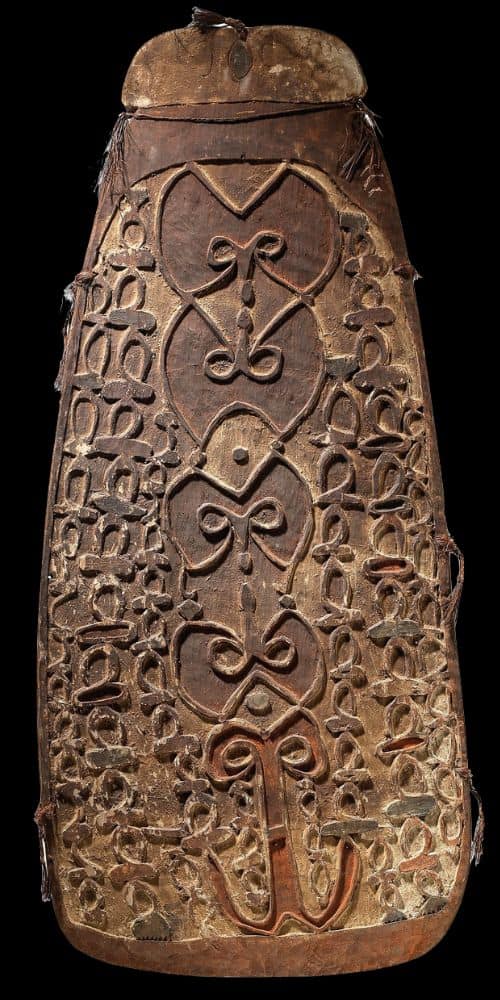
Asmat Shield
West Papua
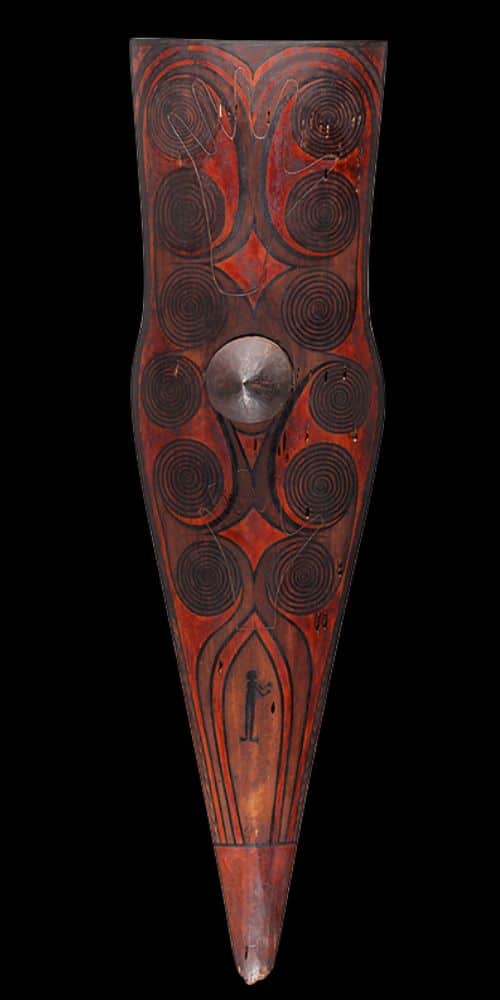
Mentawai Shield
Mentawai Island Indonesia
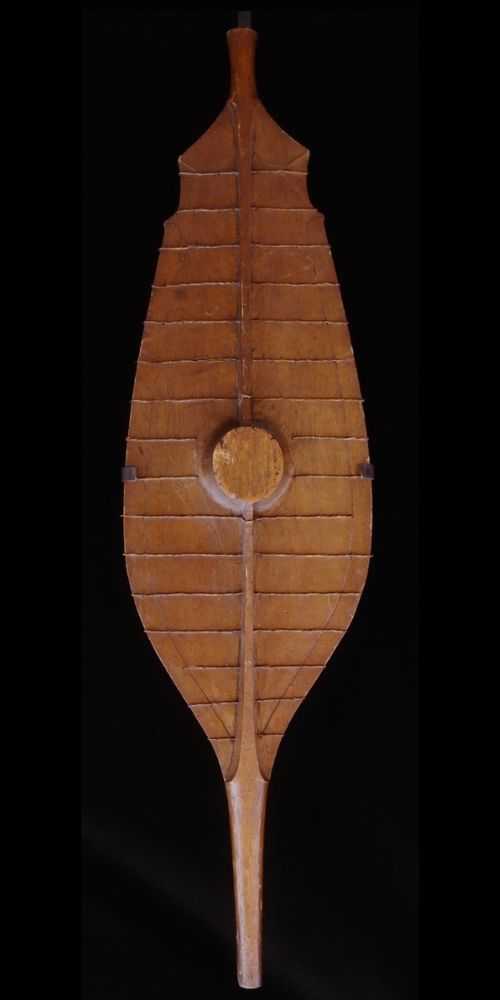
Nias Shield
Nias Island
Polynesian War Clubs

Fijian War Club

Tongan War Club
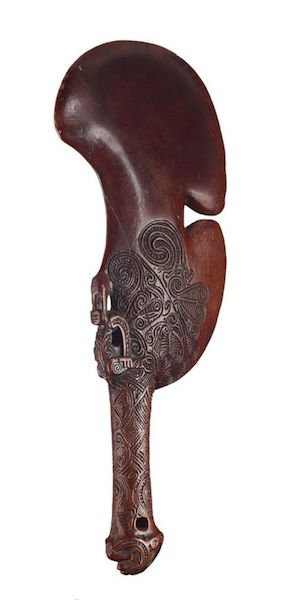
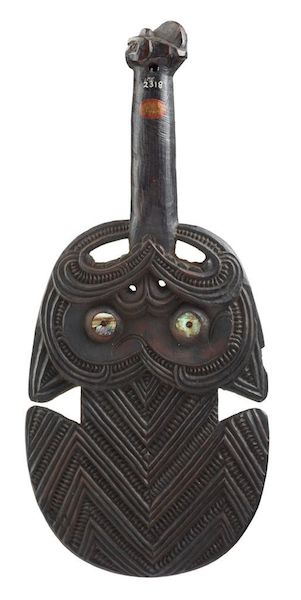
Maori Clubs New Zealand
In Polynesia clubs were the weapon of choice. It was the Polynesian war club that was the most highly prized and intricately decorated warriors’ weapons. In Fiji, weapons were so venerated that some had personal names and given the same treatment as idols. I have a seperate article on Polynesian War Clubs
In Polynesian society, war was not uncommon and occurred between different tribes and clans. It was a chance for warriors to prove their personal prowess and improve their reputations. It was quite a common, for example, for Maori war leaders to fight a one on one duel as proxies for their armies. Wars had structure and a sense of formality. Fighting with war clubs was honorable.
I have seperate articles on Fijian War Clubs, Tongan War Clubs and Maori Weapons
Australian Aboriginal War Clubs
There are several distinctive styles of Aboriginal Club from different Aboriginal tribes. In general, the value of an Aboriginal club will vary depending on its age, rarity, and design. Many of the very simple common clubs are not worth a great deal. The more interesting varieties and rare examples are collectable.
Club types vary because aboriginal Australia was made up of many different groups and languages and each had differnt weapons
Complete article on Aboriginal clubs
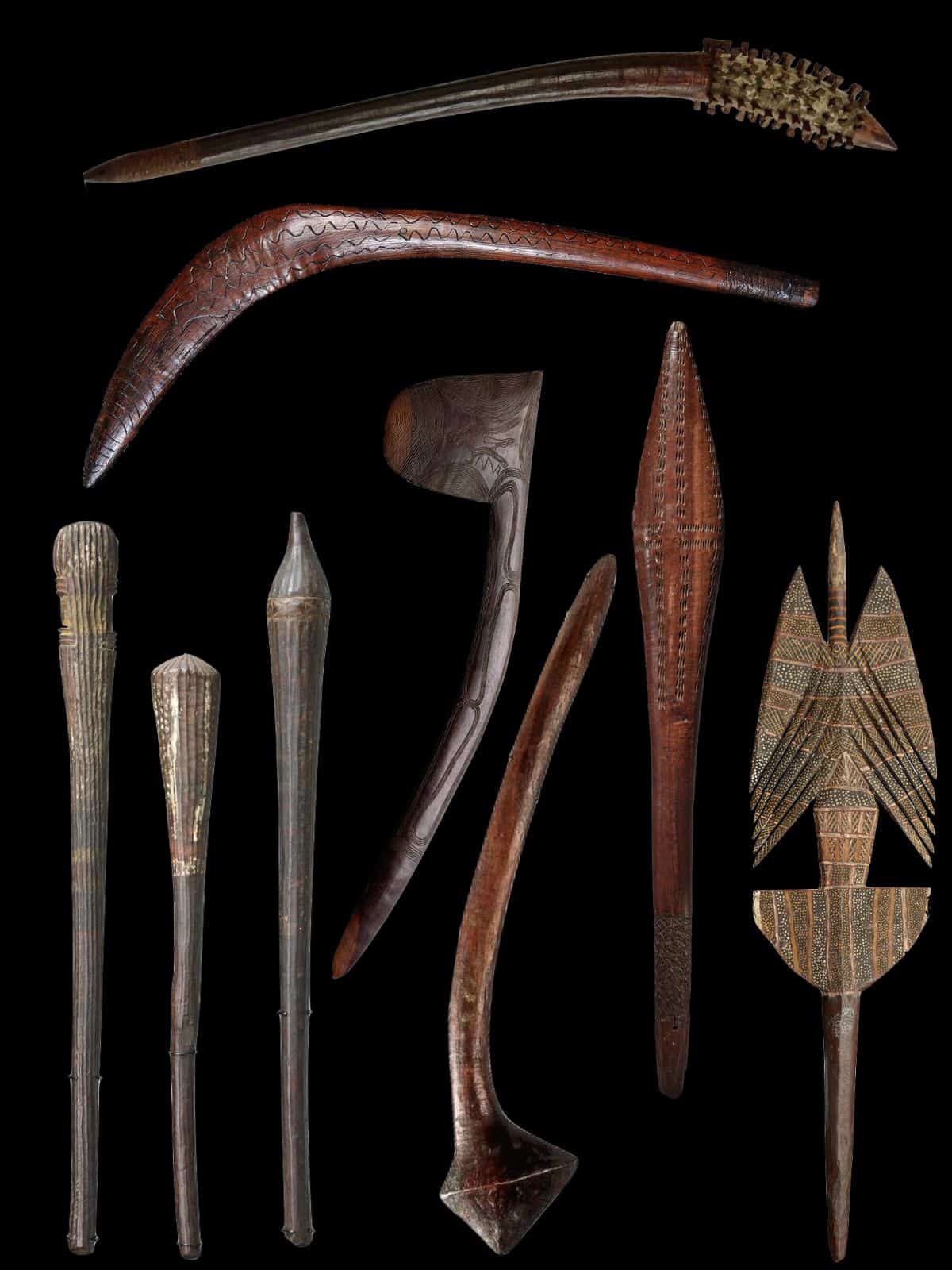
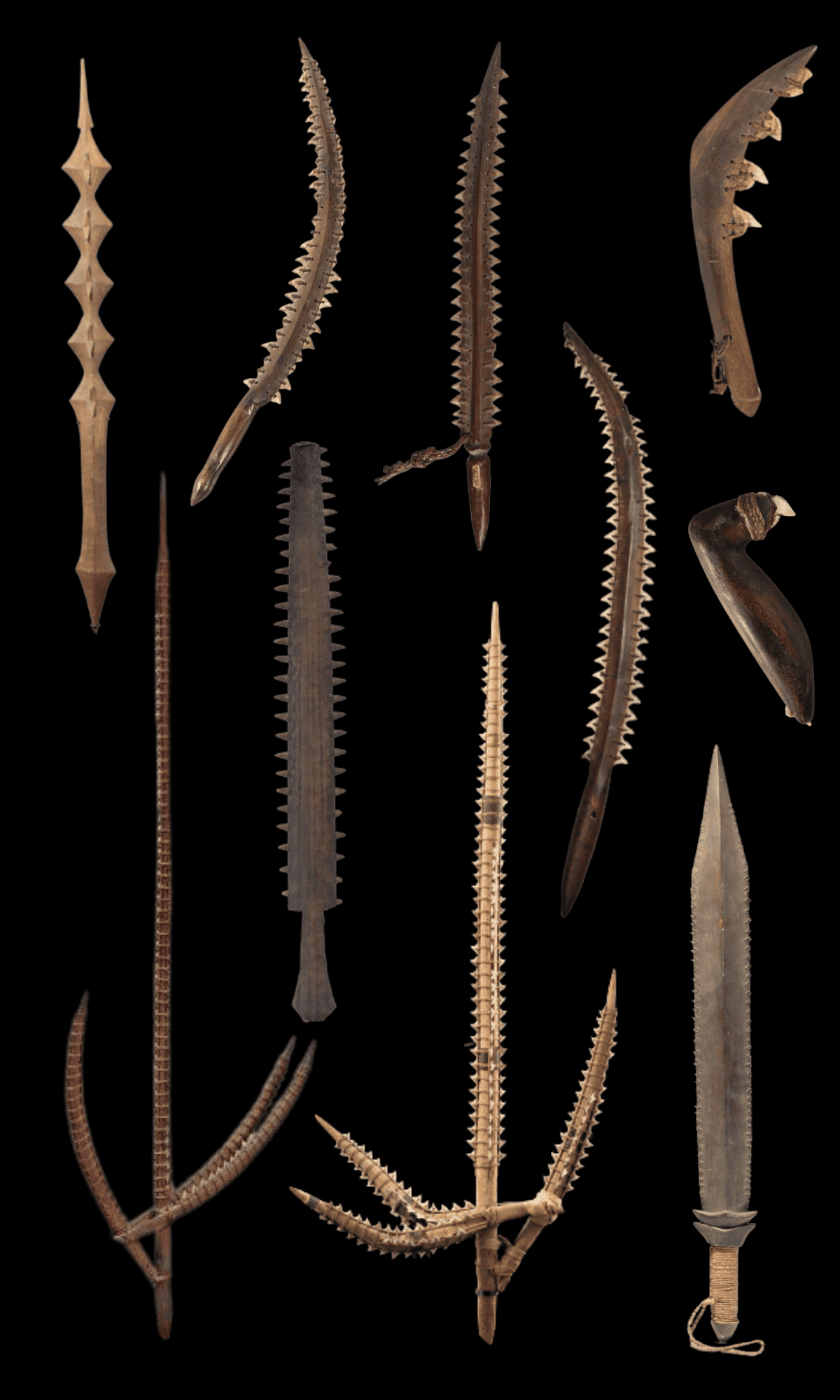
Micronesian Tribal Weapons
Micronesia is best known for shark tooth weapons. These came in a variety of sizes.
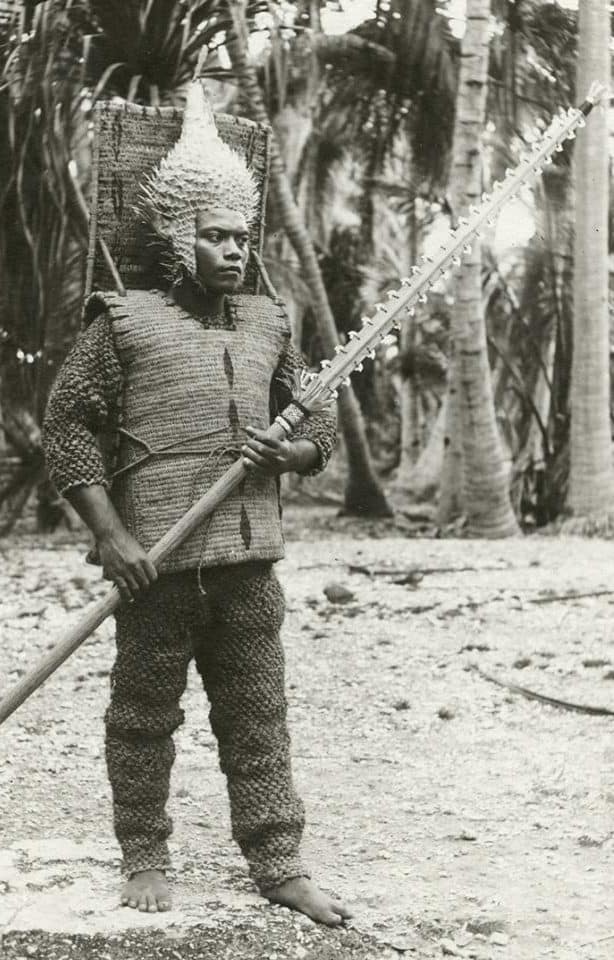
It was one of the only places in the pacific to use body armour. Much like polynesia, fighting with clubs was honerable.
Micronesians did not use shields or bows and arrows.
All images in this article are for educational purposes only.
This site may contain copyrighted material the use of which was not specified by the copyright owner.
